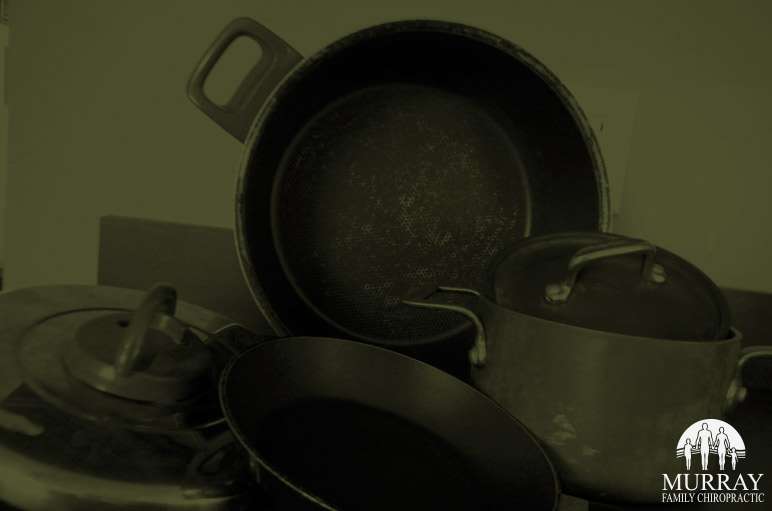There are safer alternatives to frying pans and cookware coated with perfluorooctanoic acid (PFOA) — a key chemical found in Teflon. PFOA is carcinogenic. When frying pans are heated above 660 degrees Fahrenheit the non-stick coating can begin to degrade and release these PFOA’s into your household. PFOA’s have killed dogs and birds so it’s probably toxic for humans as well.
Try cooking with stainless steel, glass, ceramic or cast iron instead. These options are not expensive and can be found in most stores that carry cookware..
If you are using non-stick frying pans, follow these 10 tips for safer nonstick use:
1. Use pans on low or medium heat only (not high heat). Overheating can cause the coating to break down, which can result in the release of toxic particles and/or gases. (Keeping the heat down also extends the life of your pan.)
2. Cover a majority of the pan’s surface with whatever you’re cooking, as this will keep the pan’s temperature down.
3. Only preheat nonstick pans on medium or low. I like to put a tablespoon of water into my pan as it heats up, and when the water starts to sputter and cook off, I know the pan is ready for the food.
4. Don’t use nonstick pans over “power burners” (anything above 12,000 BTUs on a gas stove or 2,400 watts on an electric range).
5. Use high quality nonstick cookware. Cheap, lightweight nonstick pans heat up faster (not good), so invest in a good quality, heavier-bottomed pan. These cost more but will cook more evenly, last longer, and be safer.
6. If you tend toward cooking only on high heat or walking away from your stove, don’t use nonstick cookware; or use a good quality ceramic cookware made with nontoxic glaze.
7. Ventilate your kitchen, and use your exhaust fan to take up any fumes.
8. Don’t put your nonstick pans in the dishwasher; they will last longer.
9. Avoid scratching or chipping your nonstick pans. Toward this, use wood or silicone utensils instead of metal, and don’t use steel wool to clean your pans. Also, don’t stack your nonstick pans (or if you do, put towels between them).
10. Replace moderately used nonstick cookware every three to five years. If your pan becomes damaged for any reason before this, don’t keep using it; replace it.
Fry safely,
Dr. Rob
















